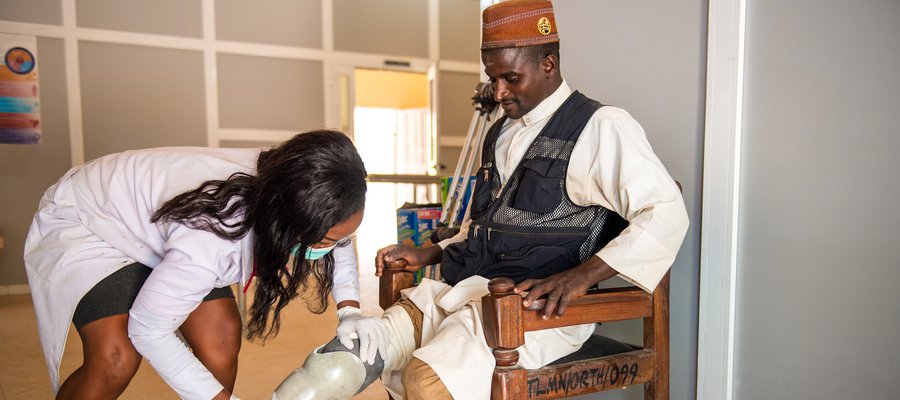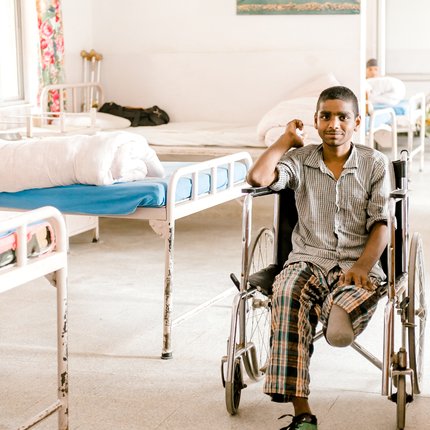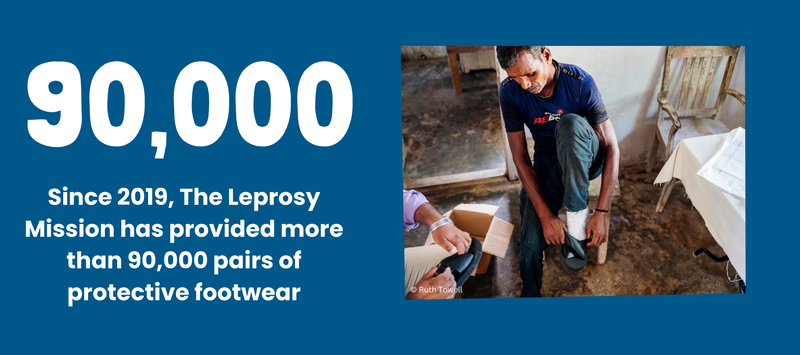Disability
Our Disability Work
Leprosy is the leading cause of preventable disability in the world, and yet disability is not an inevitable consequence of leprosy. That’s why the Leprosy Mission is committed to seeing zero disability as a result of the disease.

Following the adoption of the United Nations Convention on the Rights of Persons with Disabilities (CRPD), disability is increasingly understood as a human rights issue. It is also an important development issue because it often hinders access to basic provisions.

Our approach
We are working with people living with disabilities, and with other non-governmental organisations (NGOs) to break down barriers, providing:
- Specific, practical responses – such as providing specific activities like physiotherapy, occupational therapy, eye care and surgery.
- Influencing, or ‘mainstreaming’ work - identifying and overcoming the barriers in society that people with leprosy and disabilities face, such as physical accessibility, communication, negative attitudes that lead to social exclusion, and discriminatory legislation.

Our disability-focused work includes:
- Physical rehabilitation – physiotherapy, occupational therapy, surgery and the provision of appliances like crutches, wheelchairs and prostheses for people with mobility problems.
- Livelihoods training and vocational training – both in TLM’s own centres and by enabling disabled people to access livelihood programmes in their communities.
- Community-based rehabilitation – ensuring that people with disabilities are included in the development that is going on in communities.
- Training – of people with disabilities to give them skills to break down barriers and stand up for their rights; and of governments and other organisations to ensure they include disabled people in their programmes.
- Research – to understand the barriers that disabled people face and the things that facilitate their access to services, in partnership with people with disabilities themselves, as well as with universities around the world.
- Advocacy – at local, national and global level, for the rights of people with disabilities. Our global advocacy includes joint action with our partners in the International Disability and Development Consortium (IDDC), the International Disability Alliance, Disabled Peoples' International, and the International Federation of Anti-Leprosy Associations (ILEP).
- Promoting inclusive Christian communities – for example in South Africa where TLM partners with the organisation DisAbility ConneXion in a project called RampUp.